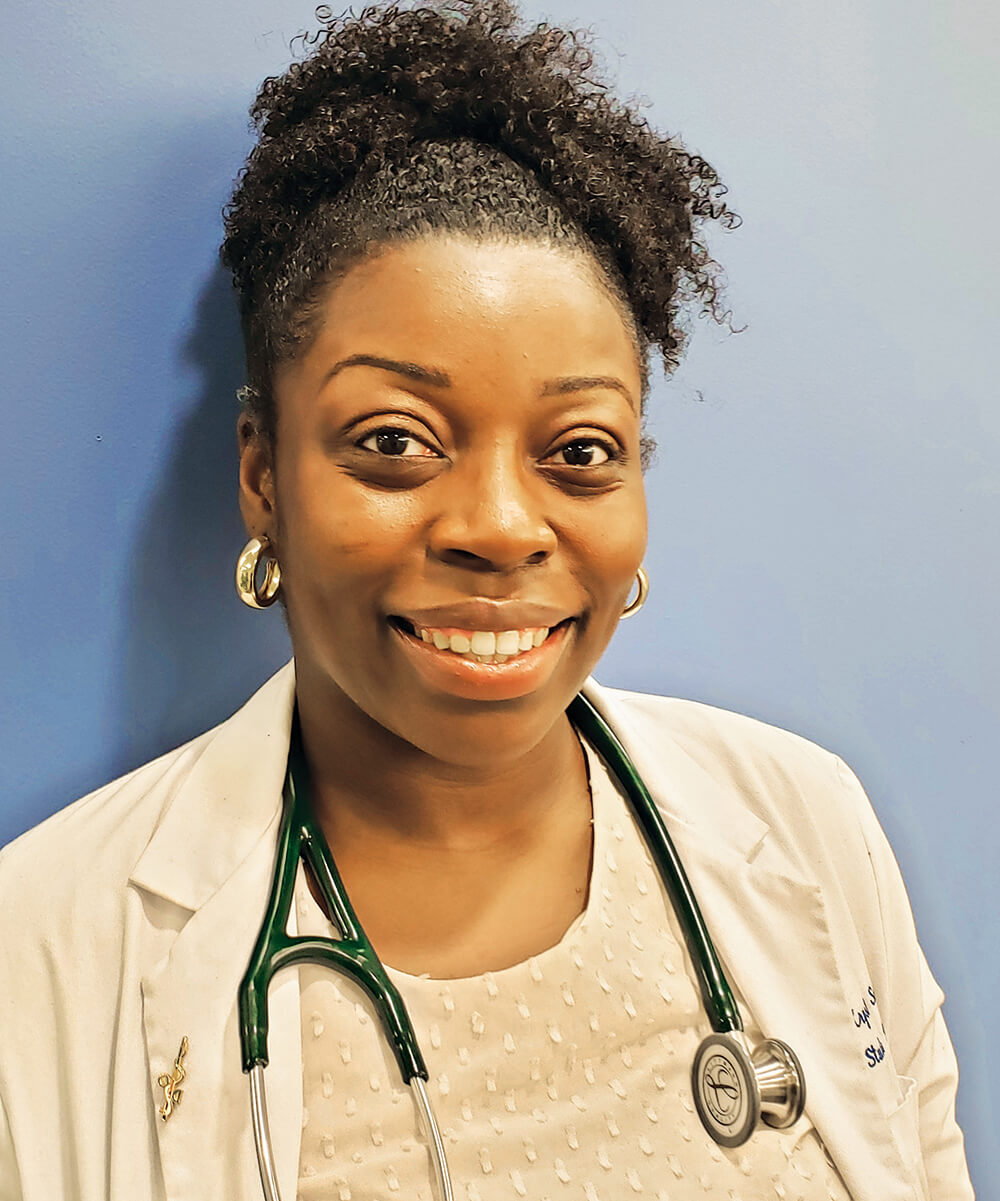News
Cultural Competency
Healing Diverse Patient Populations

“If you aren’t a culturally sensitive health care provider, there’s a good chance you won’t get to the bottom of a patient’s problem,” says Dr. Jeffrey Gardere, Assistant Professor of Behavioral Medicine, Touro College of Osteopathic Medicine (TouroCOM). Dr. Gardere and Dr. Joyce Addo-Atuah of Touro College of Pharmacy (TCOP) are co-leading a relatively new interdisciplinary course, “Cultural Competency in Health Care.”
This course for first-year TCOP and Touro-COM students, introduces and sensitizes aspiring physicians and pharmacists to the challenges of providing quality, culturally-appropriate and patient-centered health care, while navigating the shifting waters of patient populations. During the semester-long class, students develop the skills and understanding for practicing medicine in diverse communities, especially underserved ones.
GLOBAL IMPACT ON HEALTH CARE
“The impact of globalization has created patient populations today reflecting a diversity of races, ethnicities and religions, all of which present an array of health-related beliefs, values, attitudes and practices. These factors can impact a patient’s access to health care as well as how well they navigate and stay within the system and adhere to health care directives and medications,” explains Dr. Addo-Atuah. The course was developed in conjunction with the Institute of Medicare (IOM) and the Agency of Health Care Research and Quality (AHRQ).
INTERDISCIPLINARY APPROACH
The course adds an additional component of diversity for the students by placing DO and Pharmacy students together in the classroom and working as teams. Together they experience, firsthand, the value of an interdisciplinary approach to “learn about, with and from” one another, which can pave the way for future collaboration.
Through lectures, in-class exercises, case studies and teamwork, the course takes students through a combination of historical contexts, observations, self-reflections and experiences involving diverse population groups. These exercises help students develop a cultural social intelligence and an awareness of their personal biases, including those related to race, ethnicity, religion, appearance, sexual orientation or age. “Many of the students we teach arrive at Touro very insulated. These are the students who excelled on tests and with book learning but who had limited experience of the world beyond their community and family,” explains Professor Gardere. Attending Touro, which some fondly call the “United Nations of DO and Pharm Schools” because of its diverse student population, is an ideal setting for students to look at and understand how their original families and communities can impact their view of the world. Says Professor Gardere, “We try to get them to start working with their hearts not just their brains.”
A key part of the learning experience is helping students to notice the subtle signals a patient might be sending, perhaps via their body language. “We want our students to see the patient and not simply make assumptions. For instance, it’s important to ask, ‘May I shake your hand,’ rather than simply sticking out a hand and assuming that everyone understands and is comfortable with this form of greeting,” explains Dr. Gardere.
Lectures focus on health care in the Hispanic, Asian American, African American and the LGBT communities, while others touch on religious sensitivities. Students learn about health disparities routinely experienced by racial/ethnic minorities, or those who may experience health care differences based on their gender, age, socioeconomic and insurance status, as well as religious or cultural beliefs/practices, sexual orientation and physical and mental disabilities.
During the course, teams of TCOP and TouroCOM students work together to evaluate case studies and come up with treatment plans. These projects involve working with immigrant, prison, HIV or elderly populations and identifying the biggest health problem facing this group. “We want our students to be aware of social determinants of health, such as income, insurance, educational level and environmental factors like ventilation. For example, minorities are more likely to be diagnosed with late-stage breast cancer and they also account for a disproportionate amount of AIDS cases,” explains Professor Addo-Atuah.
Each team then sets out to develop an awareness campaign about this health risk. Components of the project include team-created fliers to reach this group with key messages, as well as a PowerPoint presentation that reflects an understanding of the language and the nuances of the population.
A LEARNING EXPERIENCE
Despite her deep knowledge in the area of diversity, Cultural Competency class was a learning experience for TouroCOM student, Krystal Savice. With leadership roles in cultural competency action and support groups, including serving as president of the Student National Medical Association (SNMA), an organization that helps minority students with professional development, working as creative director of the Diversity Task Force on campus and secretary of the Rainbow Health Coalition, Krystal entered the class believing she was fairly culturally sensitive.
“But in the class, I learned otherwise,” she explains. “A case study described a situation with a 17-year-old girl from Mexico who needed a C-section but the medical team was unable to get consent for the procedure because the patient spoke an indigenous language. I assumed everyone from Mexico spoke Spanish,” explains Krystal. “I had never heard of this. It made me stop and think about the assumptions I’d made about this patient population.” After analyzing the case study, Krystal and her team recommended that in this medical setting it would be important to have an interpreter trained in indigenous languages and to also make sure there was staff training conducted in cultural competency.
For Krystal, this course has been an important part of medical education. “There are many unconscious biases that we need to be mindful of,” she said. “This course helped each and every one of us to see this.”

